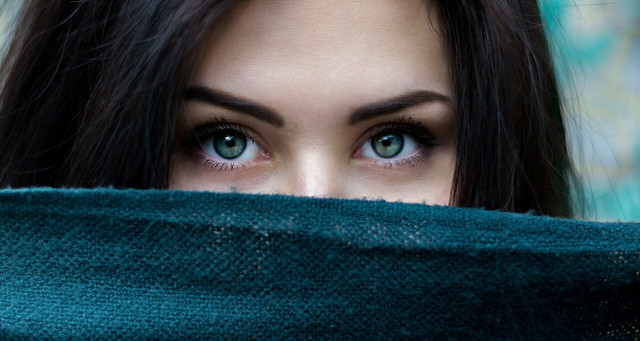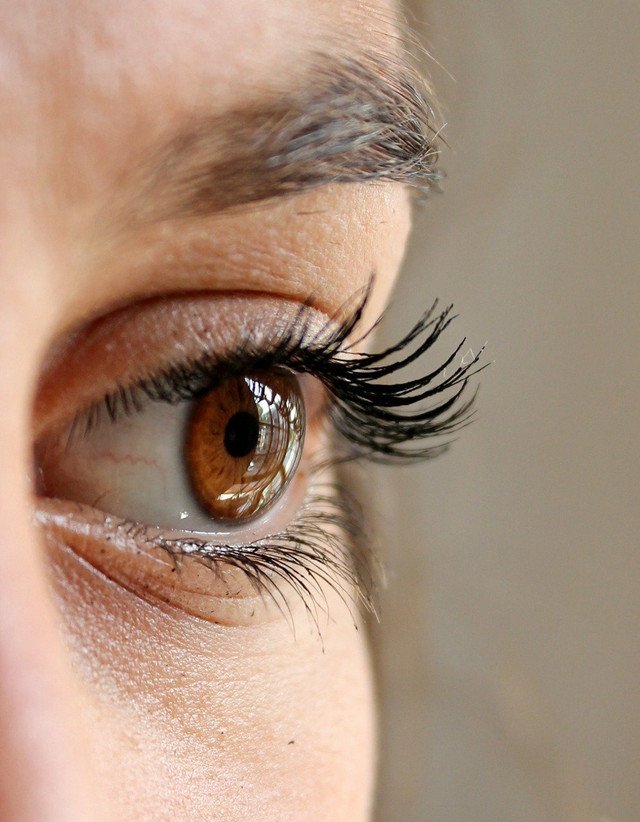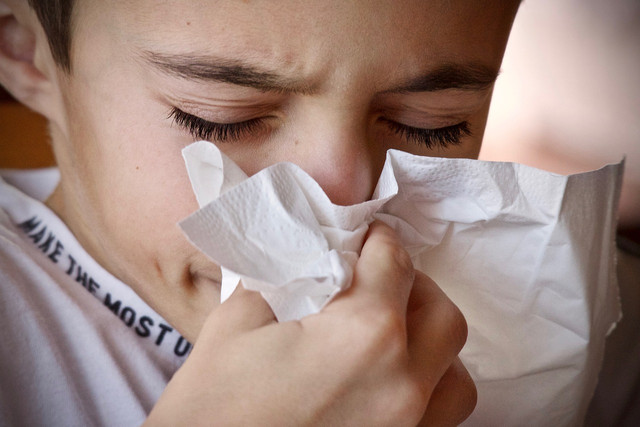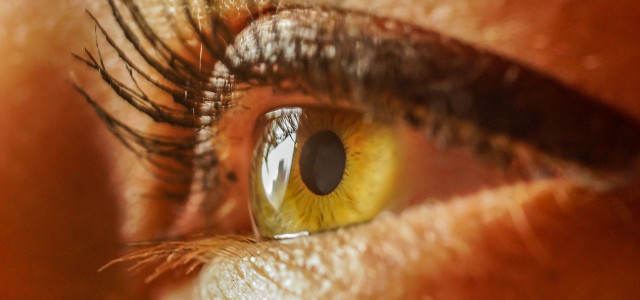Itchy eyes are at best a mild nuisance and at worst signs of a more serious condition that may require a trip to the doctor. Most of the time, however, there is no cause for alarm, as itchy eyes can be soothed and remedied naturally at home. Here we show you how.
Common Causes of Itchy Eyes

If your eyes are mostly itchy at night, there is little cause for alarm and the root cause can be easily managed and even eliminated most of the time. However, do not delay seeking medical advice if the itchiness is persistent throughout the day and night as this may be signs of a more serious problem that needs immediate medical attention.
For all sorts of reasons, your eyes may stop producing enough tears to keep your eyes from getting itchy and irritated, the most prevalent of these is simply the process of ageing. In other instances, conditions such as rheumatoid arthritis and diabetes can also lead to fewer tears and medications such as decongestants, antidepressants, birth control pills and blood pressure medication will often list dry eyes as a side effect. Finally if you’ve ever been outside in the wind for a long time or in an extremely dry environment with low humidity, you may have noticed your eyes getting dryer and itchier.
Spending a lot of time in front of a computer screen creates eyestrain which is also a common cause of itchy eyes. Maybe you are trying to read in a poorly lit area, this can strain your eyes, causing them to feel itchy. Also driving for a long time, especially at night or on a hot sunny day, can strain your eyes. Eyestrain can also develop if you’re forcing yourself to keep your eyes open and remain awake when you’re tired. For some people, indoor heating or air conditioning can cause strained, itchy eyes.
Seasonal Allergies
If you get itchy eyes around the same time every year, you most likely have a seasonal allergy to higher pollen counts or ragweed. One indicator of allergies is if your dry itchy eyes are accompanied by constant sneezing and nasal congestion. These symptoms are triggered by histamine, a compound released by cells to defend against allergens. Histamine causes an inflammatory response, and itchy eyes are among the common signs of this natural process. One way to reduce symptoms is to avoid contact with seasonal allergens where ever possible.
Perennial Allergies
Things like dust, mold and pet hair are among the more common perennial allergies, these being allergies that persist year-round rather than appearing seasonally. If dust or pet hair is not present in your home environment, then perhaps you are allergic to certain products in your home. Another factor causing your itchy eyes could be the type of contact lens solution that you are using or maybe the shampoo, soap or cosmetics you apply might be the underlying problem.
Contact Lenses
Speaking of contact lenses, not applying enough lens lubricant, keeping your contact lenses in for too long or using unclean or old contact lenses can definitely irritate your eyes, making them constantly red and itchy.
Airborne Irritants
Your eyes are very sensitive to smoke, exhaust fumes and for some people even certain perfumes or deodorants can become irritants. Avoiding exposure to these types of triggers is the simplest solution.
Eye Infections
On a more serious note, your eyes can be susceptible to fungal, viral and bacterial infections that will all create itchy symptoms. The most common of these eye infections is definitely conjunctivitis, also known as pink eye because the white part of the infected eye turns pink. This is very contagious and if left untreated can lead to more serious infection and perhaps even lasting damage in more severe cases.
There is a proven and natural home remedy for almost any mild health complaint. Here we show you how to create a soothing oatmeal bath to relieve itchy skin: How to Make a DIY Oatmeal Bath for Itching: Recipe and Benefits
Home Remedies For Itchy Eyes



1. Tea Bags
Take two tea bags and prepare them as though you were making a cup of tea. Squeeze out the excess liquid from the bags and place them (cool or warm) on your closed eyes for up to 30 minutes.
2. Sliced Cucumber
Yes, much like tea bags sliced cucumber has long been a go-to for tired, itchy eyes. Ideally apply your freshly sliced cucumber when it is cold and place on your closed eyes for 30 minutes.
3. Cold Compress
A cold-water compress can relive the itch and will have an almost instant soothing effect on your eyes. Simply take a clean cloth, soak it in cold water and apply to closed itchy eyes repeating the process as often as you like.
4. Hot Compress
If your eyelids are inflamed and itchy rather than your eyes (a condition called blepharitis) hold a damp, warm compress on your closed eyes. Of course, it goes without saying, do not use boiling water!
5. Use A Humidifier
Dry air can cause itchy eyes. People with persistent itchy eyes who do not suffer from allergies may want to use a humidifier in their bedroom at night, particularly during the winter or in dry environments.
How to Prevent Itchy Eyes



If seasonal allergies are the main cause of itchy eyes, paying attention to local weather reports that include pollen counts is a good way to avoid exposure on those high pollen count days. You can try keeping your home and car windows closed during pollen season and wash your eyes, take showers and wash clothes more frequently to help keep pollen in your living areas to a minimum.
When you have eliminated environmental allergens as the cause of your itchy eyes, try taking a break from various products that regularly come into contact with your eyes. It may take a bit of time to find the cause of your woes, but the final result should be worth the effort.
If you wear contact lenses, remember to take them out before bedtime and follow other basic lens care steps to avoid dust and other irritants settling onto the lens surface. Adhere to the instructions on how to care for your lenses and how often you should replace them.
The best treatment for itchy eyes is sometimes as simple as giving your eyes a rest. That might mean reducing your time in front of a computer or TV screen, reading in good light or having an early night and getting some good, deep sleep.
When to See A Doctor
Treating dry eyes may be as simple as using over-the-counter eye drops to help lubricate and soothe your itchy eyes. But if you are experiencing persistent or chronic dry eyes it is certainly time to make an appointment with an eye specialist.
Red and itchy eyes may result from an inflammation of the eyelids known as blepharitis. It occurs when the little oil glands at the base of your eyelashes become blocked. Sometimes just keeping your eyelids clean is enough to resolve the symptoms, but it can be a chronic issue that leads to conjunctivitis and other unwanted effects. Prescribed antibiotics and anti-inflammatory medications will likely be necessary to provide relief.
Another possible eye infection is called uveitis, an inflammation of the iris — the part of your eye with color. Uveitis can cause eye pain and extreme sensitivity to light. If not treated, it can lead to permanent vision loss and other problems such as cataracts and glaucoma.
Both types of infections will need to be immediately evaluated and treated by a doctor. So if you are in any doubt, do not delay an appointment and needlessly risk permanent damage to your eyes.
Read more:
- Home Remedies for Dry Eyes: Natural Methods for Quick Relief
- How to Reduce Puffy Eyes: 10 Natural Remedies
- Dry Scalp: These Remedies Help Treat an Itchy Scalp
Important Information regarding Health-related Topics.
** Links to retailers marked with ** or underlined orange are partially partner links: If you buy here, you actively support Utopia.org, because we will receive a small part of the sales proceeds. More info.Do you like this post?






